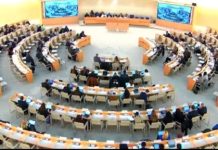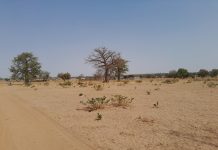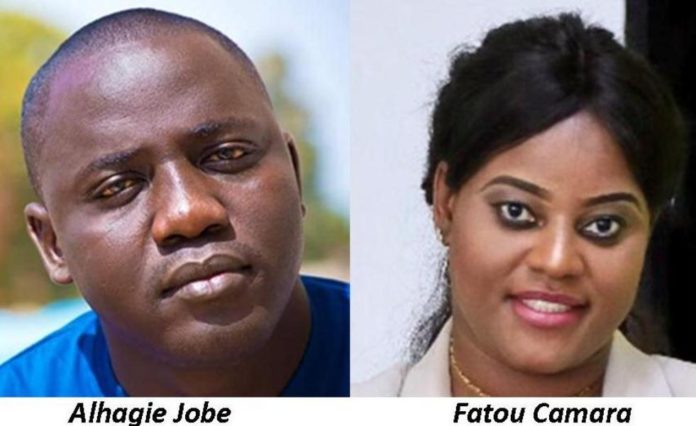The ECOWAS Court of Justice has ordered the government of The Gambia to pay six million Dalasis in compensation to four Gambian journalists for the violation of their human right and subjecting them to degrading treatment.
Alhagie Jobe and Lamin Fatty, fourth and fifth plaintiffs in a suit filed by four journalists and NGO were awarded two million Dalasis each for the violation of their human rights including the right to freedom of expression and right to freedom from torture while Fatou Camara and Fatou Jaw Manneh, second and third plaintiffs would each get 1 million Dalasis for the violation of their rights.
A three member panel of the Court, presided over by Honorable Justice Friday Chijioke Nwoke, which handed down the judgement also ordered the government of The Gambia to amend or repeal the obnoxious laws with which it relied upon to incarcerate the three plaintiffs.
The panel rejected the Defendant’s claim that the first plaintiff, the Federation of African Journalists, lacked the locus standi to institute the action as the Court has established that the plaintiff is a duly registered and certified Non-Governmental Organisation (NGO). It also dismissed the Defendant`s claim that the matter is statute barred as untenable as the cause of action still subsists.
In suit no. ECW/CCJ/APP/36/15, the four plaintiffs and the Federation of African Journalists through their counsel Mr.Noah Ajere approached the court alleging the violation of their fundamental rights by the State for its failure to protect the rights of its citizens as provided for in relevant international texts to which The Gambia is a signatory.
The plaintiffs all submitted that security agents of the Defendant State arbitrarily arrested, harassed and later detained them under inhuman conditions forcing the second, third and fourth plaintiffs into exile ‘for fear of persecution and other forms of persecution including the fear of physical and mental harm, as a consequence of their work as journalists.’
The second, third, fourth and fifth plaintiffs, who are practicing journalists in The Gambia and members of the Federation of African Journalists, an umbrella body/association for journalists in Africa, claimed they are victims of cruel, inhuman and degrading treatment in The Gambia.
The second plaintiff averred that she was arbitrarily arrested and detained by intelligence agents of the defendant for allegedly being the source of false news and fled the country while on bail for fear of unfair trial.
In his case, the third plaintiff claimed he was convicted for sedition/publication of false news about the state of Gambia for which he was charged to court, which found him guilty and ordered him to pay a fine which he paid before leaving on exile.
For the fourth, he claimed to be the victim of arbitrary arrest and detention for 17 months during which he was tortured and later charged with possession of materials with sedition intention/intent of sedition. Though he was acquitted, he subsequently fled The Gambia.
The plaintiffs demanded an order of the Court amongst others to compel The Gambia to amend its laws to the extent of its inconsistency with international laws including the ECOWAS Revised Treaty, African Charter on Human and Peoples’ Rights and International Covenant on Civil and Political Rights accordingly and ensure total/absolute prohibition of torture and other cruel and inhuman treatment or punishment. Also on the panel, which delivered the judgement on Tuesday 13th February 2018, were Honorable Justices Maria do Ceu Silva Monteiro and Alioune Sall.



















